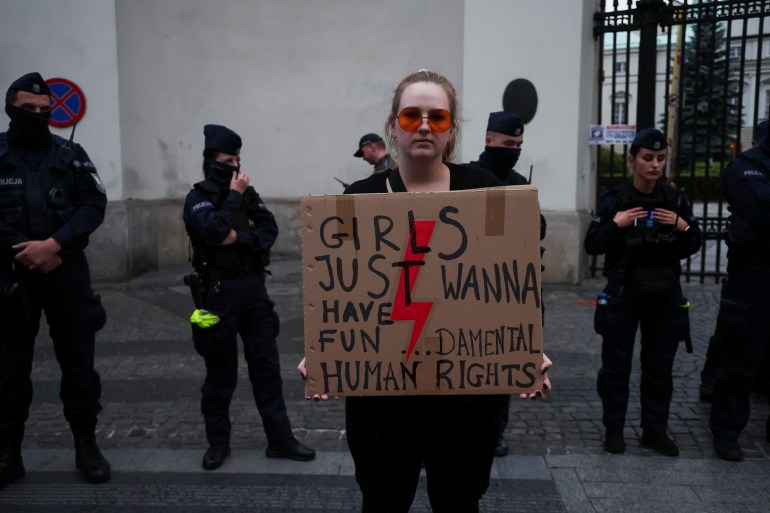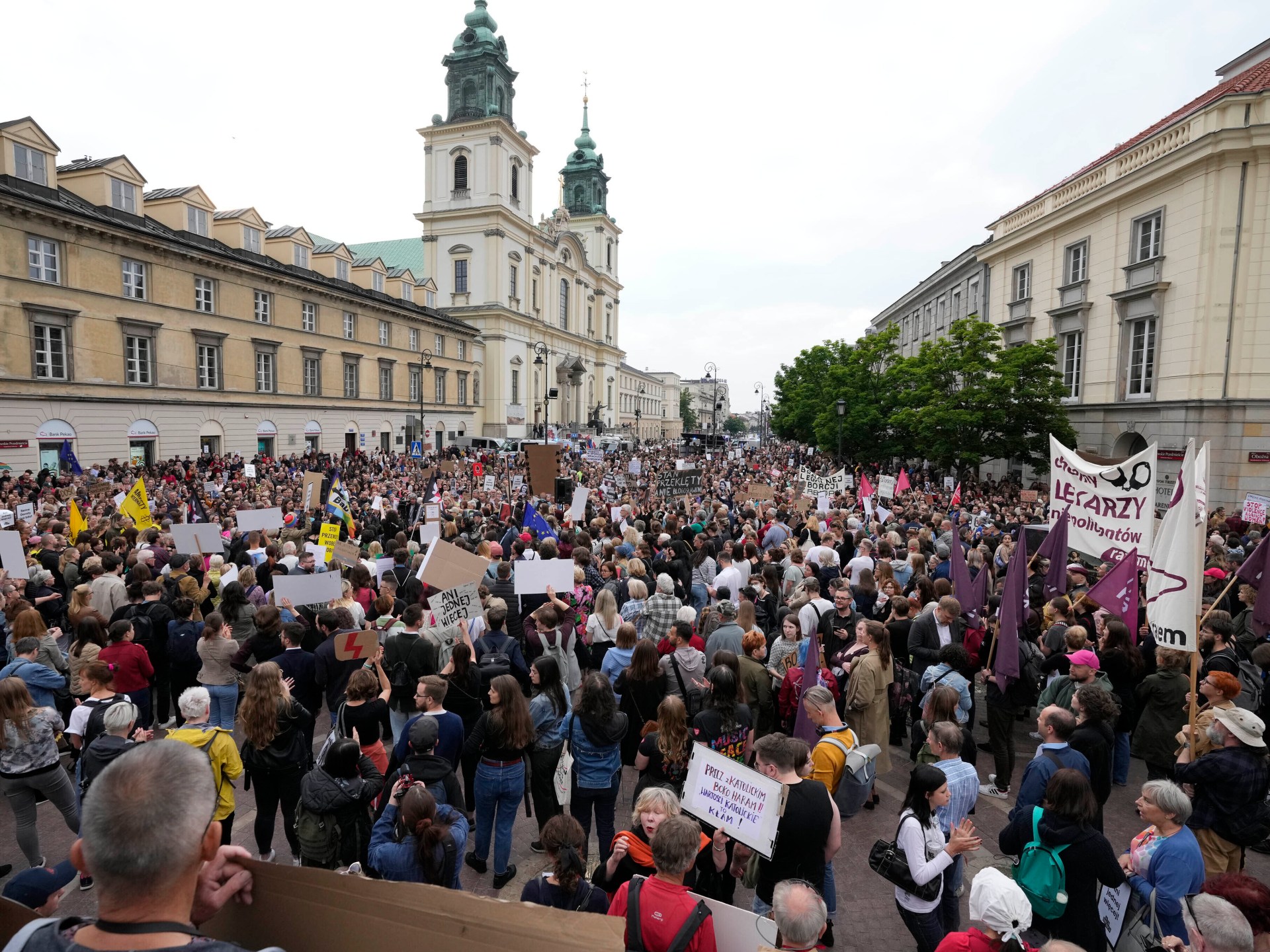Polish lawmakers debate reforming strict abortion laws
Poland has some of the strictest abortion laws in the European Union.
Lawmakers in Poland have begun debating changes to the country’s harsh abortion laws that had grown more restrictive during eight years of conservative nationalist governments.
Liberalising access to abortion has been a central campaign promise of Prime Minister Donald Tusk and his Civic Coalition that emerged victorious in elections in October that saw a high turnout partly due to women’s rights issues.
The country has some of the strictest abortion laws in the European Union, only allowing a woman to have an abortion in cases where the pregnancy has resulted from rape or incest, or if it threatens the life or health of the mother.
Lawmakers are expected to debate multiple bills that have been put forward by coalition groups.
Somehave sought to make abortion legal without limitations until 12 weeks of pregnancy while one bill looks to reinstate the right to abortion in case of foetal abnormalities, which would effectively return Poland to the situation before 2020 – when a constitutional court ruling had banned such procedures – while keeping most current restrictions in place.

It is widely expected that President Andrzej Duda, a conservative ally of the former right-wing government, will veto any changes to legislation. He vetoed a law last month that would have allowed over-the-counter access to emergency birth control pills for girls and women aged 15 or higher.
Thursday’s parliament session follows pressure from activist groups and women’s rights campaigners, who have staged many rallies over the years against tightening abortion rules.
Women have also been resisting the draconian laws by using networks to access abortion pills and procedures.
In March, right-wing parliament speaker Szymon Holownia decided to postpone the debates until after local elections last weekend. This had caused some anger among activists and coalition partners in parliament.
Authorities in Poland have come under increasing pressure over abortion laws after multiple women died in cases linked with abortion complications.
Even legal abortions are often difficult to get in Poland because doctors and hospital administrators are unsure about the rules or refuse to perform terminations based on their own beliefs in the predominantly Catholic country.
In the case of sexual assault, women face the additional stigma of having to publicise the crime by reporting it to the prosecutor’s office to be determined eligible for legal abortions.




